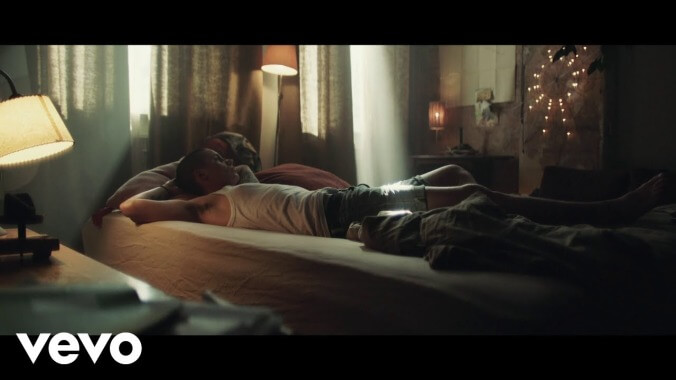Desire and gender run free on Anna Calvi’s ferocious Hunter

No one would call Anna Calvi’s music tame. This is an artist who announced herself in 2011 with the rousing drama of “Desire” and the sweeping, Morricone-inspired vistas of “Love Won’t Be Leaving,” who took the stage in flaming red silk, expressive riffs sparking from her sunburst Telecaster. It was enough to make Brian Eno enthusiastically declare her “the biggest thing since Patti Smith” and earn the Twickenham native a Mercury Prize nomination her first time out. Calvi’s excellent second album, One Breath, which earned her second nod for the U.K.’s biggest music prize, pushed her sound to more playful, experimental territory, even if John Congleton’s (St. Vincent) outsize noise-pop production occasionally felt more imposed upon than supportive of Calvi’s compositions.
On her third album, Calvi unleashes a rawer, more ferocious voice, one sharpened by her hunt for agency and freedom as a queer woman. Calvi’s work has always subtly defied gender conventions (see: songs like “Suzanne & I” and “I’ll Be Your Man,” her general stage presence), but with the announcement of Hunter, the musician published what was essentially a manifesto stating, fist raised, that this was a queer, feminist record: “I believe that if we were allowed to be somewhere in the middle, not pushed to the extremes of performed masculinity and femininity, we would all be more free… I want to explore a more subversive sexuality, which goes further than what is expected of a woman in our patriarchal heteronormative society.” Driven by this passion, Hunter is a wrecking-ball demolition of boundaries.
Hunter lays claim to a range of roles and emotions typically off-limits for women, particularly aggression and sexual agency, while reclaiming the one usually assigned them: vulnerability. Naturally, these truths often coexist within the same song: In the psychobilly pulse of “Wish,” Calvi is possessed by a Nick Cave-like mania, chasing down just “one more wish before I die,” when the sight of her lover’s eyes stops her dead in her tracks, a resplendent chorus of guitar, synth, and operatic wails momentarily arresting and soothing her. It’s one of her finest songs to date, closing with an exquisite, howling fit of guitar work.
 Keep scrolling for more great stories.
Keep scrolling for more great stories.
